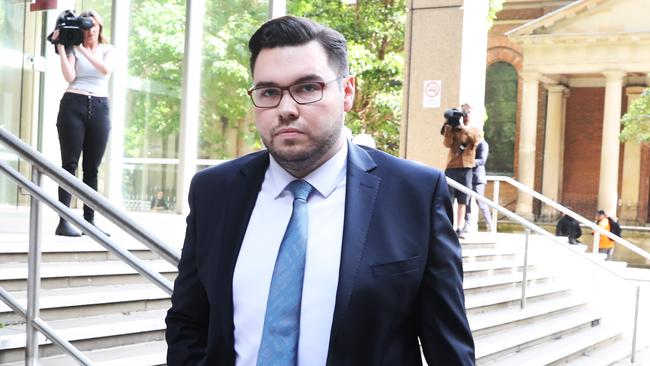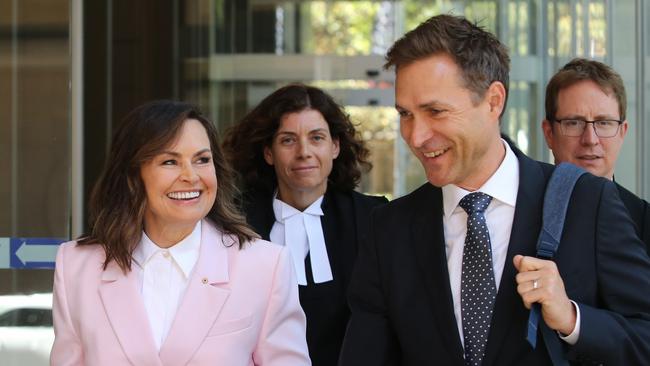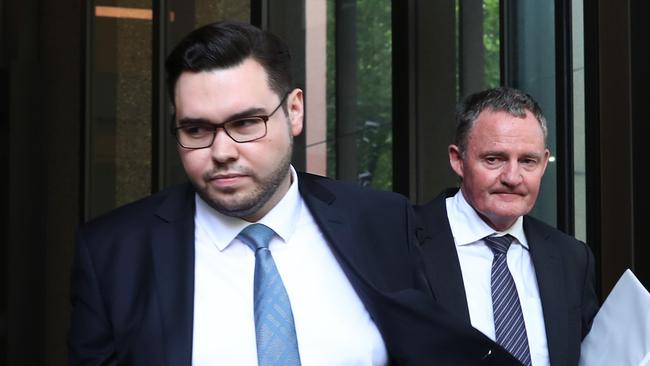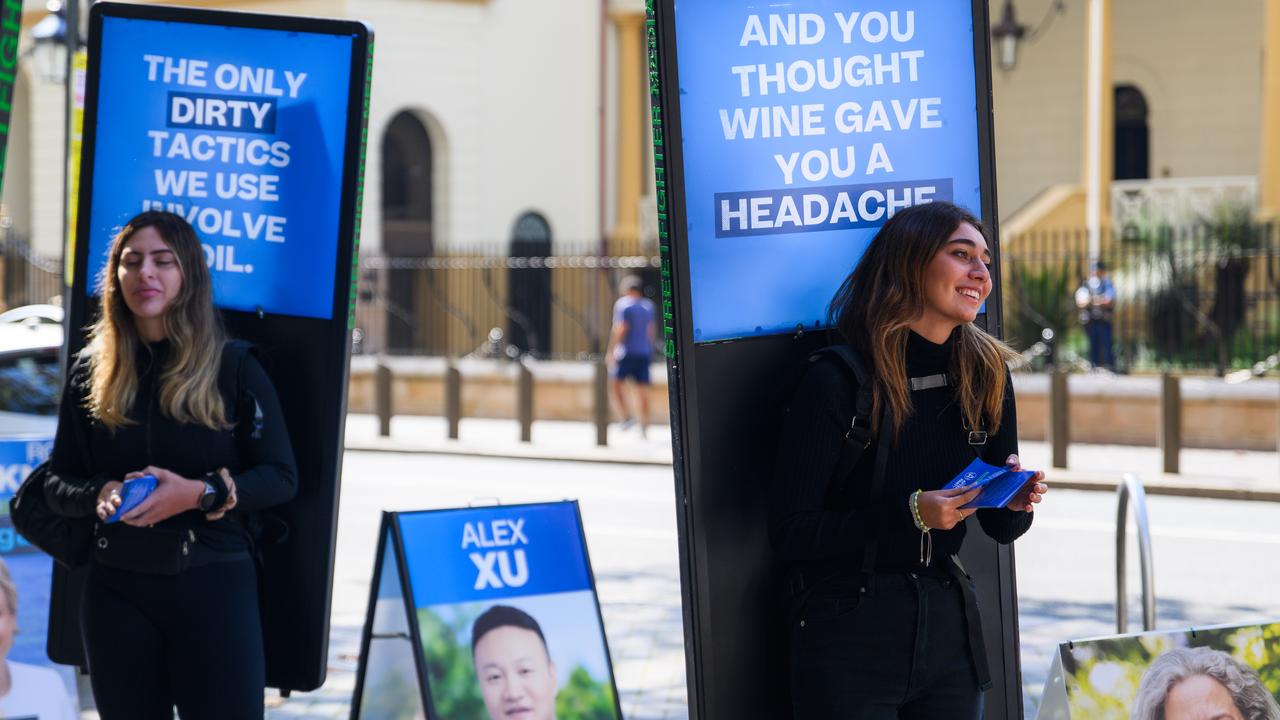Bruce Lehrmann pushing politics on night of alleged rape, defamation trial hears
Bruce Lehrmann has for the first time under oath delivered his version of the night he allegedly raped Brittany Higgins, claiming he had been tasked with a political ploy.

Bruce Lehrmann has for the first time under oath delivered his version of the night he allegedly raped Brittany Higgins, claiming he had been tasked with a political ploy to shore up support for defence projects in Western Australia and help the Liberals avoid an election “wipe-out” in the state.
The opening day of his defamation case at the Federal Court in Sydney heard the former Liberal staffer had been “publicly maligned as certainly the most prominent rapist, probably one of the more revolting predators of recent history of this country.”
Meanwhile, the court heard Ms Higgins described as an “unreliable” witness whose evidence had been riddled with “inconsistencies and improbabilities”.
Mr Lehrmann is suing Network Ten and its former star television presenter Lisa Wilkinson over an interview she conducted with Ms Higgins that aired on The Project in 2021, detailing accusations that Mr Lehrmann had raped Ms Higgins, but not naming him as the alleged attacker.
Ten is seeking to prove that Ms Higgins’s allegations that she was raped in Parliament House in March 2019 are “substantially true”; it says it did not identify Mr Lehrmann in its broadcast, and that it made reasonable efforts to contact him and get his response.
Matthew Richardson SC, acting for Mr Lehrmann, on Wednesday told the court his client was easily identifiable as the assailant in the interview and, as such, his life and reputation had been “utterly destroyed” by the network.
“He comes here for justice. He understands that he can’t persuade everybody, but following the withdrawal of the criminal proceedings against him, he brings these proceedings against his most prominent accusers: Channel 10 and Lisa Wilkinson and The Project,” he said.

Mr Richardson said key “tip-offs” included in The Project interview left Mr Lehrmann clearly recognisable.
“A viewer knows from those tip-offs these things: the assailant had previously worked with (defence minister Linda) Reynolds in Home Affairs. That he’d moved with her to the Defence Industries portfolio … That he’d been out to drinks with Ms Higgins and many others on the Friday night before the alleged assault,” he said.
“That he had left the building, and been seen packing up his things after a meeting with Ms Brown, three days later on the 26th. And that, by February 2021, he was working in Sydney.”
Mr Richardson also said Ms Higgins had given unstable evidence since first alleging she was raped, which raised questions over whether her allegations were true.
He argued that while Ten believed Ms Higgins’s improbabilities were consistent with the behaviour of someone who had been raped, there was “no such thing as typical behaviour by any victim survivor.”
“Some degree of delay or variation in accounts or confusion may well be understandable in some (rape victims), but of course a delay in reporting, significant changes in accounts, implausibilities of detail and objectively false statements may also be consistent with a false complaint,” he said.
Wilkinson appeared in court dressed in a baby pink power suit and flanked by a team of lawyers. She was seated in the front row of the courtroom, with Mr Lehrmann seated at the other end of the row.

The court was on Wednesday played Wilkinson’s full interview with Ms Higgins. Mr Richardson cited portions of Wilkinson’s opening monologue, including one quote: “Tonight: Claims of rape, roadblocks to a police investigation, and a young woman forced to choose between her career and the pursuit of justice. And it all happened right in the heart of our democracy.”
From this quote, Mr Richardson said, “it’s clear from the start where Ten stands.”
“Ms Higgins is portrayed in an entirely positive way,” he said.
“Essentially, she is canonised by this program and Ms Wilkinson. She is held up as the epitome of truthfulness and decency. Not a scintilla of doubt is applied to any aspect of her complaint or allegations. The message is plain, what she says has happened.”
Mr Lehrmann took the stand late in the day to give his evidence in chief, for the first time revealing that on the night of the alleged rape he was gauging aide-de-camps over whether Senator Reynolds should transfer the building of French submarines to WA to shore up political support.

He told the court the Liberals were aware of an upcoming election “wipe-out” in WA, and Senator Reynolds was eager to move the submarine project there to appease voters.
“When Senator Reynolds came into the (Defence Industries) portfolio … I attended a number of incoming ministerial briefs out at the Department of Defence, and Senator Reynolds had … great political interest in moving the build of that contract to WA,” he said.
“The polling had indicated that the Liberals were facing a bit of an election wipe-out in that state.”
He said the “advantage” of moving the contact to WA was “very clearly economic, jobs, growth, things like that. It very much was a political issue from the senator,” he added.
He said he had been having discussions around “taking the temperature, if you like … of the logistics of it. How seniors in the Department of Defence may see it, to gather sensitivities from all angles.”
“Certainly there were obvious ones in the media from the Labor Party, but the public service would have had reservations as well so as ascertaining that,” he said.
Mr Lehrmann said his interactions with Ms Higgins the night of the alleged rape were “professional and cordial”, and he recalled any conversations they had to be “minimal”.
“From my recollection … it was an invite from Ms Higgins to me,” he said.
“It was arranged last-minute that we would go down and get a bite to eat and head back … to work. I can’t recall why, but it was only supposed to be a brief dinner.”
Mr Lehrmann produced credit card statements revealing he spent $80 that night, and had bought drinks only for himself and Liberal staffer Austin Wenke.
He said following The Project interview, he was “booted out” of social media chats, and unfriended on Facebook by close friends.
“I observed not only being removed from group chats, but people either blocking me … my total number of friends on Facebook reduced, meaning people had unfriended me,” he said.


